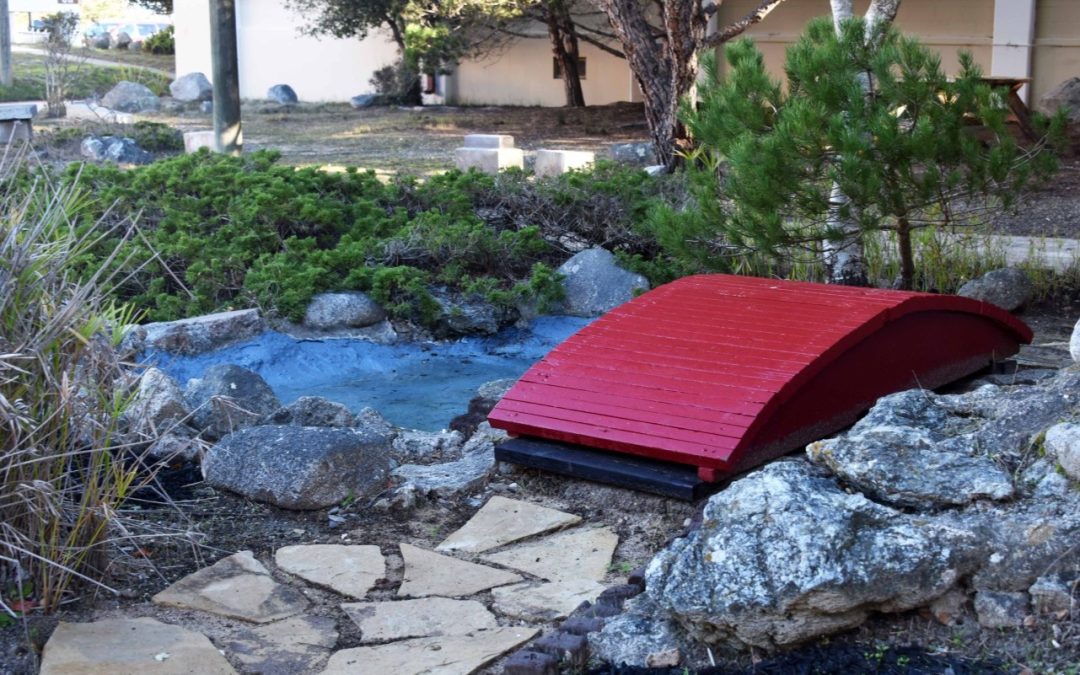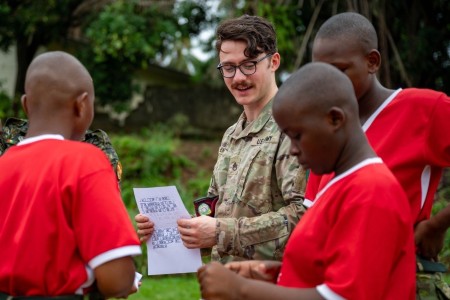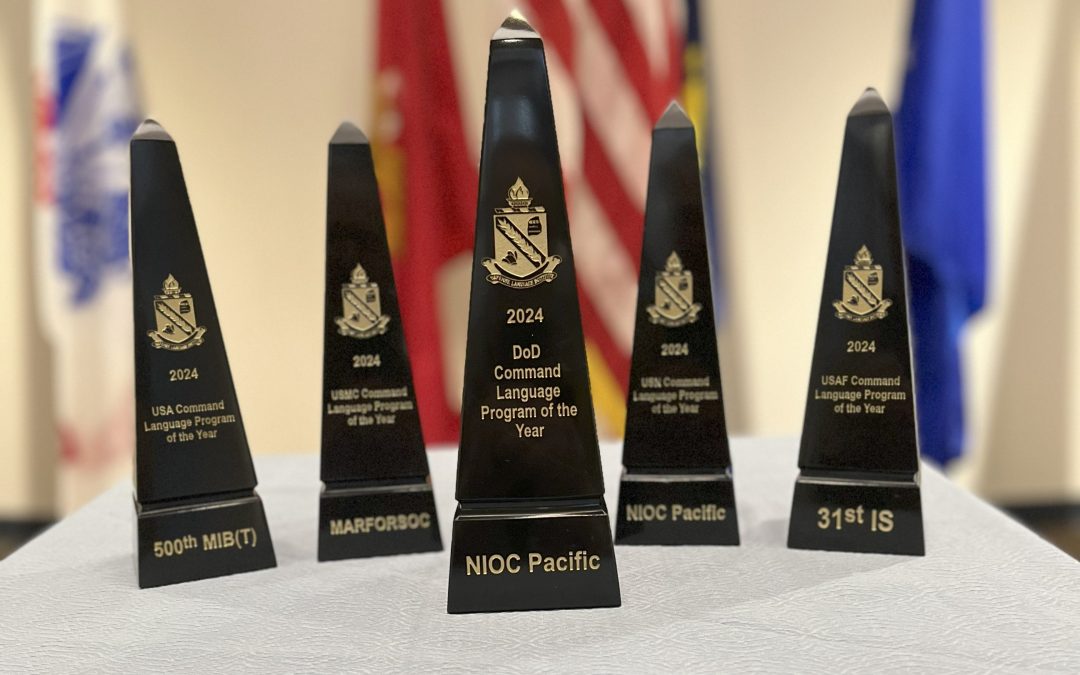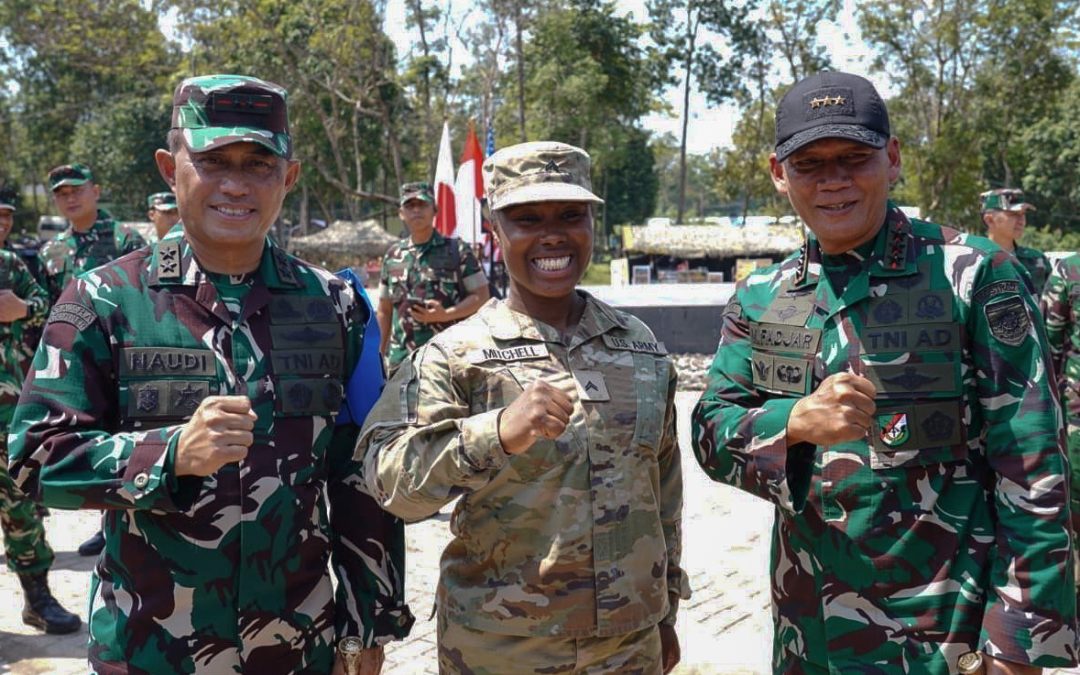By Tammy Cario
Between the end of December 2019 and March 2020, the coronavirus disease, or COVID-19, spread like wildfire to six continents. In this new world where health conditions develop rapidly from one minute to the next, phrases like “fluid situation” and “continually changing” are a frequent part of the lexicon when training during a pandemic.
In times like these, flexibility is paramount. Especially when your job working for the Department of Defense is considered mission essential.
“The Department of Defense relies on linguists to communicate with our partners and serve critical intelligence roles against our adversaries,” said Col. Gary Hausman, commandant for the Defense Language Institute Foreign Language Center. “A linguist cannot be replaced by technology. They are a critical component to protecting and defending our great country and our ally partners.”
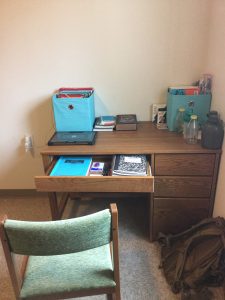
From her barracks on the Presidio of Monterey, Marine Pfc. Tia Daniels works on her language courses online.
In an effort to balance the needs of the mission and the safety of the faculty and staff, on March 17, DLIFLC students began attending their language classes online from their barrack rooms or homes. The next day, faculty was also able to telework, a move that was part of DLIFLC’s guidelines implementation from the DoD and Centers for Disease Control and Prevention, or CDC, to slow the spread of COVID-19. The classes are being held through an online platform that hosts video conferencing, chats and whiteboards, allowing the instructors and the students to continue their mission-essential training while maintaining safe distances.
Going from face-to-face classes to 100% online classes was an adjustment, although not as much as one might think, according to Pfc. Tia Daniels, a Marine studying Korean who is living in the barracks on the Presidio of Monterey.
“The transition was easier from a technology standpoint more so than any other adjustment that had to be made,” she said. It has made it easier for her to focus.
“It’s like I’m studying on some efficient power saving mode which lets me do more for longer,” she said.
For Marine Lance Cpl. Ian Graham, also a student studying Korean who lives in the barracks, the changeover to online courses was not as easy because of the human element. “The hardest part about the transition was not having the teachers directly available to communicate with…” There was also a change in classroom activities and exercises, he added, though overall, “I would say the transition has been fairly smooth, all things considered.”
A little further away off post, Airman 1st Class Kaleb Christiansen, a DLIFLC student of Pashto, is also learning his language online, albeit in a different location. For him, the online classes are much easier.
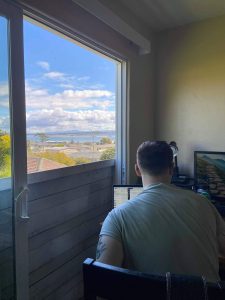
Airman 1st Class Kaleb Christiansen takes his DLIFLC language courses online at his desk from his home in Monterey, California.
“My class leader, a Navy petty officer with a lot of years under his belt, compared it to a home gym. [He said] you can have all the awesome tools available to you in the comfort of your own home, but if you lack the individual focus to accomplish your goals, you simply won’t.”
Christiansen said he doesn’t see it as just for the health and wellness of everyone around him, but as “a chance to practice some willpower and determination to push through the physical ‘limitations’ of online classes.” Self-discipline will come into play with a refrigerator so close, he says, and when it comes to maintaining physical fitness, he is on his own.
Other than going online, the classes haven’t changed that much, which is a good thing, Christiansen says.
“I think I’ve heard every one of my classmates say that we lucked out with the best teaching team possible, and I completely agree. As much as they’re getting used to the new format, they haven’t stopped the workload at all. Our teaching team cares a lot about every student, and it’s evident by the speaking hours they’ve scheduled. We’re able to use screen sharing to discuss specific tasks, texts, or even audios.”
The online training and teleworking are one part of DLIFLC’s modifications to keep the students, faculty and staff safe while continuing their essential mission. The dining hall is takeout only, access to the Presidio has been severely restricted to mission-essential personnel and the weekly graduations have become decentralized rather than organized as large, crowded events on Soldier Field.
“We are still conducting graduations,” explained Hausman during a post-wide virtual question and answer session. “All the graduations we’re doing are very small and are being held in an informal manner where they are able to space them out.” While family and friends won’t be able to attend the ceremony at this time, Hausman says it’s still important to hold graduations. “Our students have achieved great things to be a graduate and we want to recognize them and congratulate them for that success.”
It’s uncertain how long this situation will last. As DLIFLC leadership has said over and over, the situation is fluid so the future is ambiguous. As of right now, however, Hausman says he doesn’t anticipate that the DoD will stop the training pipeline, which means flexibility is key for everyone, something military members are no stranger to.
To stay updated on what DLIFLC is doing for mitigate the spread of COVID-19, follow them on Facebook or go to their website at www.dliflc.edu.

